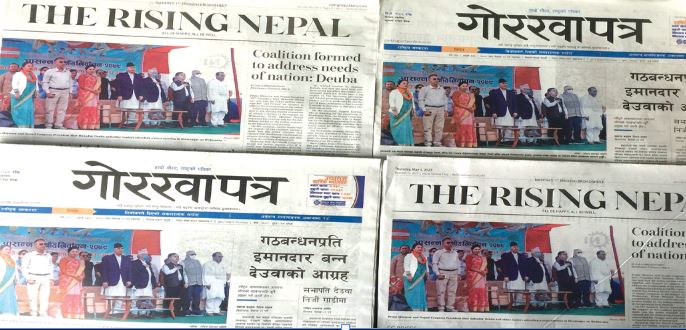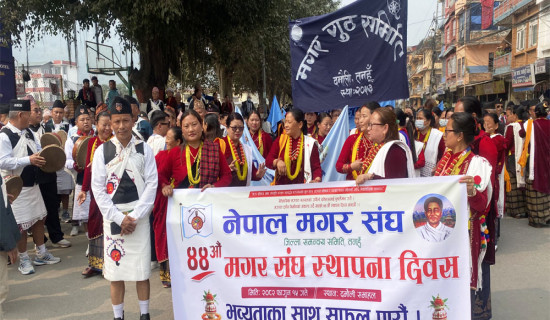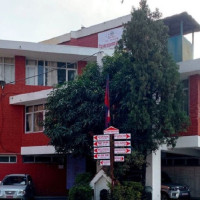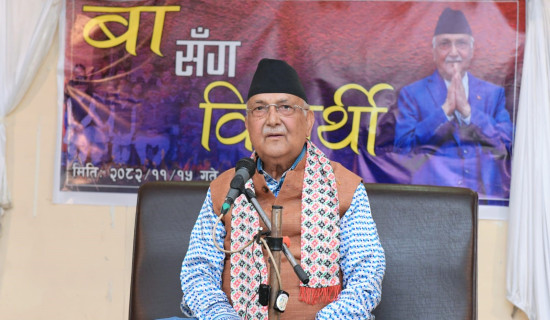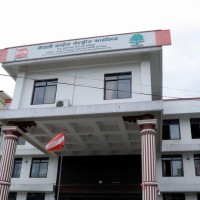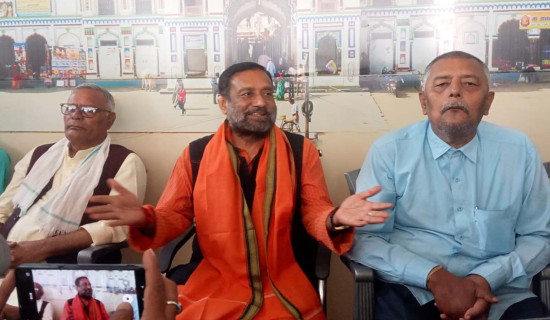- Friday, 27 February 2026
Media Ethics And Gorkhapatra
In 1871, Karl Marx wrote a letter to the Paris Commune. But Le Figaro, a French daily morning newspaper, published a completely different version of the letter with Marx’s signature. It apparently aimed to blow Marx’s thoughts on the international labour movement out of proportion.
It reads: “...Then the world will belong to us, for it will be not only Paris, Lyon, Marseilles, which will rise against odious capitals, but Berlin, London, Brussels, St. Petersburg, New York. And before this new insurrection, such a history has yet to be known, the past will disappear like a hideous nightmare; for the popular conflagration, kindled at hundred points at once, will destroy even its memory!”
In his exclusive interview published in the Chicago Tribune, an American Republican newspaper, on January 5, 1879, Marx said: “I never write such melodramatic nonsense.
That was put in Le Figaro, over my signature, about that time.” Marx disclosed that there
were hundreds of the same kind of letters flying about them.
“I wrote to The London Times and declared they were forgeries; but if I denied everything that has been said and written of me, I would require a score of secretaries.”
Marx, who was in exile in Britain, was obviously victimised by distorted information disseminated by none other than France’s oldest newspaper.
It was a classic example of fake news that had thriven even before the birth of modern journalism. Rumours, lies, disinformation and smear campaign served as effective tools to sabotage enemies and rivals since ancient times. In the first century BC, famous Roman general Mark Antony was forced to commit suicide after he heard false rumours of the suicide of his beloved Cleopatra. Nepal’s first prime minister Bhimsen
Thapa tried to kill himself upon hearing rumours that his wife would be ‘stripped of her clothes and paraded through the streets of Kathmandu.’
Internet explosion
Rumours were perhaps the predecessors of fake news that began to creep into mainstream media from the early 19th century but with the explosion of the internet, especially social media, it has entrenched its tentacles widely. It now travels fast and impacts a vast number of people in no time.
It causes damage to the reputation of targeted people and institutions beyond recall.
Former US President Donald Trump has popularised the term 'fake news', which he used to dismiss any news or views that criticised and vilified him.
In a politically polarised society, fake news finds fertile ground to breed and proliferate. A vested political and commercial interest is behind its increase through newsfeeds on social media such as Facebook and Twitter. Factors such as yellow journalism, post-truth politics, confirmation bias and motivated reasoning have led to the spike in fake news at an alarming rate, hindering the flow of correct information and critical analysis of events.
The cardinal duty of journalism is to tell people the truth. Journalists are supposed to shift truth from fiction, not to circulate falsehoods and slanted news, which not only confuse readers/audience but also deprive them of making informed decisions and choices in their personal and social life.
No doubt, social media has become a vibrant platform, boosting the citizens' inclusive
participation in the major decision-making process but at the same time, the 'false consciousness' that it spreads has posed a direct threat to democracy.
The Oxford dictionary defines ‘false consciousness’ as a way of thinking that prevents a person from perceiving the true nature of their social or economic situation.
Former UN Secretary-General Kofi Annan appreciated social media as unprecedented global force for citizens’ emancipation but also blasted it for ‘merely providing another battlefield for the surreptitious manipulation of public opinion.’
Today we are celebrating the 122nd anniversary of Gorkhapatra daily, coinciding with the national journalism day. This is a moment to reflect on how to make media more responsible towards the public.
Former UN Secretary-General Kofi Annan appreciated social media as unprecedented global force for citizens’ emancipation but also blasted it for ‘merely providing another battlefield for the surreptitious manipulation of public opinion.’
It is an occasion to ponder over the strategy and measures to fight the vices of digital media that is a public good and must not be used as a commercial product or a tool to meet the narrow political goal and personal bias and vendetta. As a strong pillar of democracy, Nepali media should not only provide authentic information and the right perspective on major public issues but also educate, enlighten and entertain the people.
When Gorkhapatra was born 122 years ago, its founder and reformist Rana prime minister Dev Shumsher had set its clear objectives through his sanad (decree) – ‘it should not publish our (the Prime Minister’s) praise and plaudits’. This edict bears the vision that news should be fair, truthful and impartial.
It amply suggests that Dev Shumsher, who had envisaged establishing and developing Gorkhapatra as a robust public media, was far
ahead of time. It encompasses the essence of professional values and ethics which even predated the media code of conduct unveiled in Western countries.
Public media
The birth of Gorkhapatra marked the start of political, social and educational reforms aimed at transforming Nepalis from raitis (subjects) to citizens.
Gorkhapatra has played an important role in generating social, literary and cultural awareness, the prerequisite for the democratic upheaval against the despotic rule of Ranas. The daily never resorted to sensational journalism to gain cheap popularity. Objectivity, accuracy and authenticity are the hallmarks of the oldest publication.
Digital media outlets should embrace these professional norms to do away with fake news. In addition to the strict implementation of the code of conduct and legal provision, journalists should embrace civic virtues so that they can contribute to the democratic consolidation and economic transformation of the nation.
(Subedi is Deputy Executive Editor of this daily)

